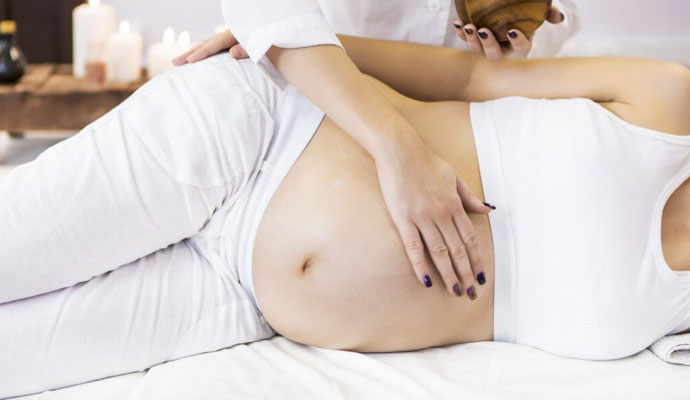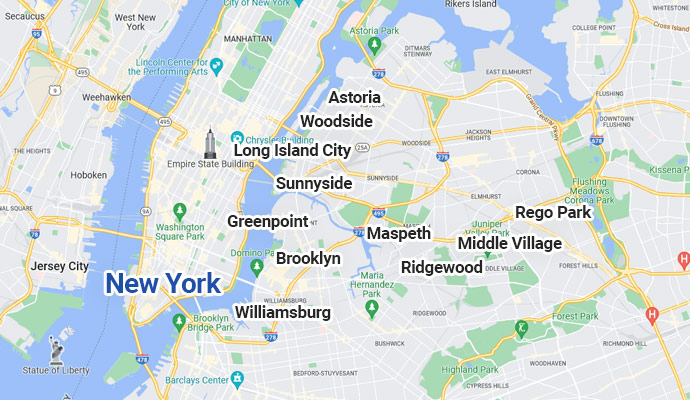Prenatal Massage in New York City
Relax, reduce stress, and improve circulation of the tired muscles and joints of pregnancy. Pamper yourself…and your baby!
Prenatal massage, popularly known as pregnancy massage, is primarily done to help reduce aches and pains during pregnancy. However, pregnant women should exercise caution because, despite its benefits, it comes with certain risks and may not be suitable for all pregnancies and all pregnant people. Please consult your OBGYN before making an appointment.
Why is Prenatal Massage Different?
One of the major reasons why prenatal massage is different from other types of massage is because of the patient’s positioning. Pregnant women need to maintain certain positions during different stages of their pregnancy journey.
Prenatal massages require the pregnant women to lie on their side rather than the back or stomach, especially when the pregnancy is in its latest stages. Additionally, pillows, padding, and bolsters may be used to support knees, back, and feet. In some instances, the massage therapist may request the client to sit in an upright position or a semi-reclining position to make it easier for them.

Are there Any Special Techniques Employed During Prenatal Massage?
The most popular technique used by massage therapists is effleurage. This is a long gliding stroke often applied during Swedish massage. It can also be used when controlling pain during labor contractions.
The massage therapist will apply deep pressure in specific areas away from the belly, such as on the hands and shoulders. For instance, your massage therapist is likely to use a different technique, avoiding the rocking technique, if you suffer from morning sickness. Therefore, it is always a great idea to discuss your pregnancy experience with the therapist before booking a massage session.
Benefits of Prenatal Massages
Prenatal massage benefits include but are not limited to the following:
Help with Pain Relief
Pregnancy can be uncomfortable and sometimes certain body parts can feel painful. As the abdomen grows, one’s posture changes to align with the point of gravity. Sometimes, this results in pain around the back, feet, pelvis, neck, shoulders, and sometimes the sciatic nerve. Professional prenatal massages can help these kinds of pain.
May Reduce Swelling
Some women suffer from fluid build-up during pregnancy. This condition is known as edema and is perfectly normal. When the uterus grows, more pressure is exerted on the legs and feet, leading to swelling. Prenatal massage can help ease such swelling.
Promotes Better Sleep
Pregnant women struggle with sleep due to various reasons. These reasons include stress, anxiety, and physical discomfort. Proper massage may help minimize or completely eliminate insomnia during pregnancy.
May Reduce Stress and Promote Relaxation
Prenatal massage helps boost mood, which in turn supports stress reduction. When a pregnant woman is less stressed, she is likely to be more relaxed and have less anxiety.


